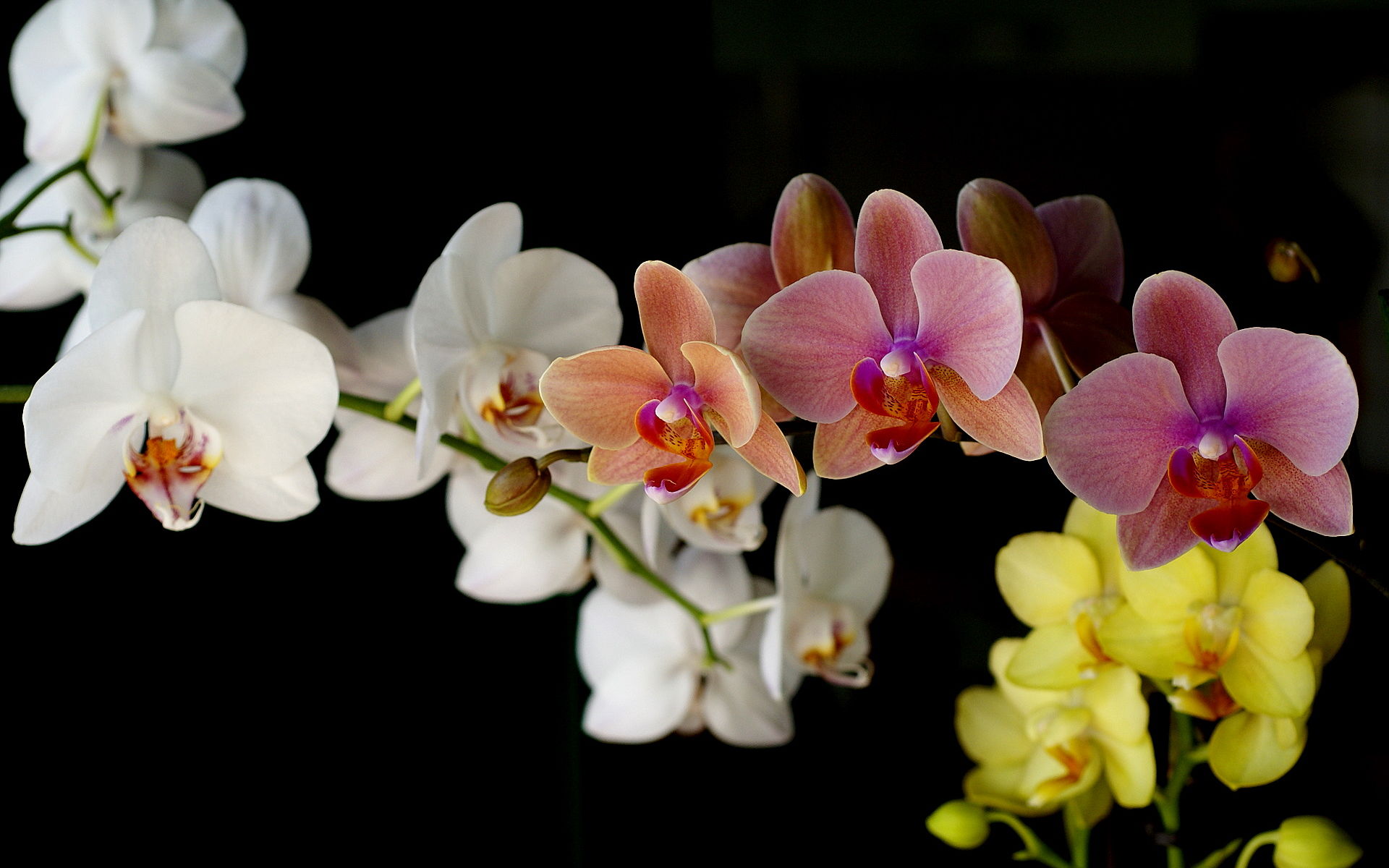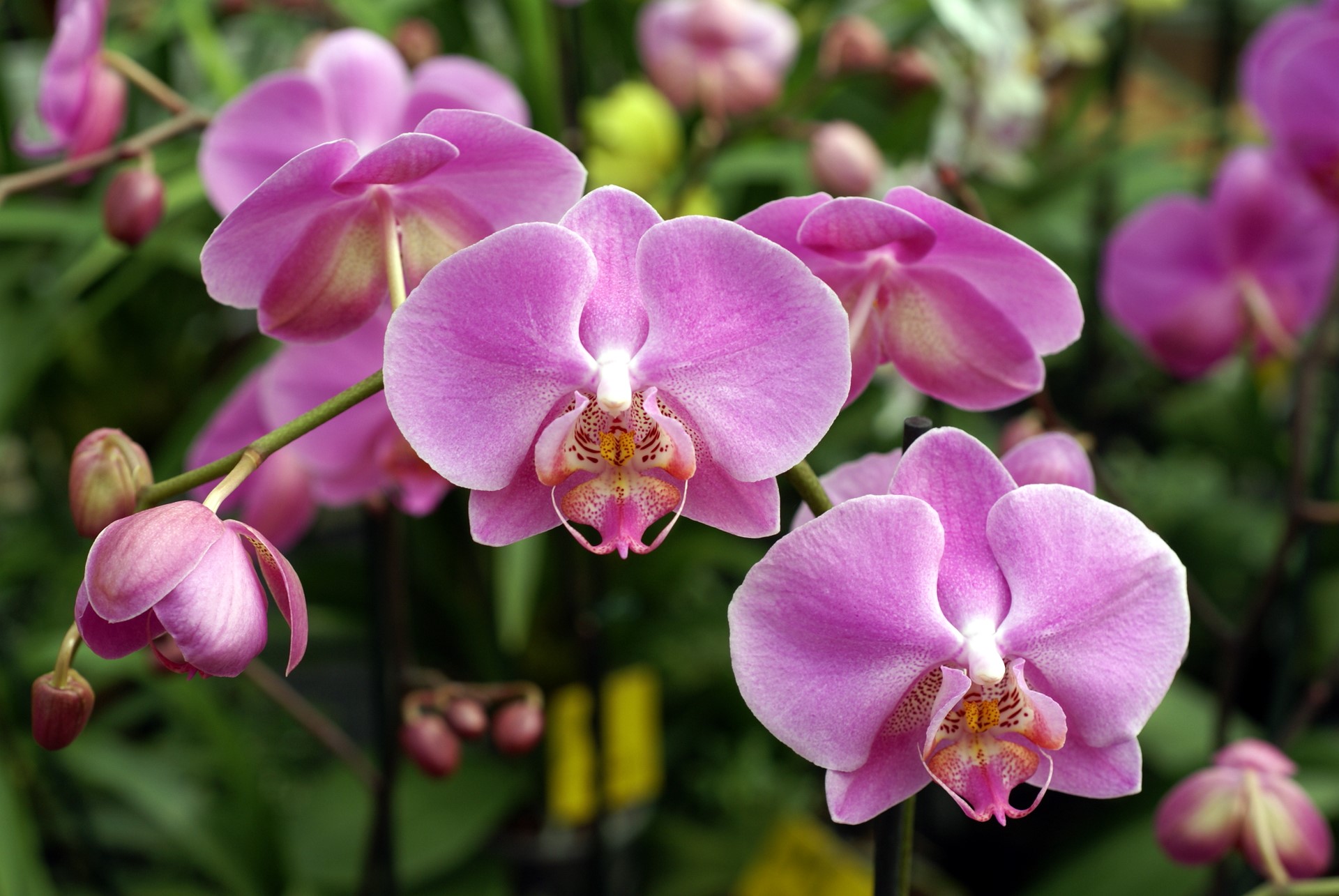Orchids Biography
"Orchid" redirects here. For other uses, see Orchid (disambiguation).OrchidaceaeTemporal range: 80–0MaPreЄЄOSDCPTJKPgNLate Cretaceous - RecentColor plate from Ernst Haeckel's Kunstformen der NaturScientific classificationKingdom: Planta(unranked): Angiosperms(unranked): MonocotsOrder: AsparagalesFamily: OrchidaceaeJuss.Type genusOrchisTourn. ex L.SubfamiliesApostasioideae HoraninovCypripedioideae KosteletzkyEpidendroideae KosteletzkyOrchidoideae EatonVanilloideae SzlachetkoDistribution range of family OrchidaceaeThe Orchidaceae are a diverse and widespread family of flowering plants with colorful and fragrant blooms, commonly known as the orchid family. Along with the Asteraceae, they are one of the two largest families of flowering plants, with between 21,950 and 26,049 currently accepted species, found in 880 genera.[1][2] Selecting which of the two families is larger is still under debate, as concrete numbers on such enormous families are constantly in flux. Regardless, the number of orchid species equals more than twice the number of bird species, and about four times the number of mammal species. The family also encompasses about 6–11% of all seed plants.[3] The largest genera are Bulbophyllum (2,000 species), Epidendrum (1,500 species), Dendrobium (1,400 species) and Pleurothallis (1,000 species).
The family also includes Vanilla (the genus of the vanilla plant), Orchis (type genus), and many commonly cultivated plants such as Phalaenopsis and Cattleya. Moreover, since the introduction of tropical species in the 19th century, horticulturists have produced more than 100,000 hybrids and cultivars.
The name comes from the Greek ὄρχις (órkhis), literally meaning "testicle", because of the shape of the root.[4][5] Linnaeus categorized the family as Orchidaceae. Orchid was introduced in 1845 by John Lindley in School Botany, due to an incorrect attempt to extract the Latin stem (orchis) from Orchidaceae.
The Greek myth of Orchis explains the origin of the plants. Orchis, the son of a nymph and a satyr, came upon a festival of Dionysus (Bacchus) in the forest. He drank too much, and attempted to rape a priestess of Dionysus. For his insult, he was torn apart by the Bacchanalians. His father prayed for him to be restored, but the gods instead changed him into a flower.
These flowers were previously called Orchis, Satyrion (Satyrion feminina), or "ballockwort".
"Orchid" redirects here. For other uses, see Orchid (disambiguation).OrchidaceaeTemporal range: 80–0MaPreЄЄOSDCPTJKPgNLate Cretaceous - RecentColor plate from Ernst Haeckel's Kunstformen der NaturScientific classificationKingdom: Planta(unranked): Angiosperms(unranked): MonocotsOrder: AsparagalesFamily: OrchidaceaeJuss.Type genusOrchisTourn. ex L.SubfamiliesApostasioideae HoraninovCypripedioideae KosteletzkyEpidendroideae KosteletzkyOrchidoideae EatonVanilloideae SzlachetkoDistribution range of family OrchidaceaeThe Orchidaceae are a diverse and widespread family of flowering plants with colorful and fragrant blooms, commonly known as the orchid family. Along with the Asteraceae, they are one of the two largest families of flowering plants, with between 21,950 and 26,049 currently accepted species, found in 880 genera.[1][2] Selecting which of the two families is larger is still under debate, as concrete numbers on such enormous families are constantly in flux. Regardless, the number of orchid species equals more than twice the number of bird species, and about four times the number of mammal species. The family also encompasses about 6–11% of all seed plants.[3] The largest genera are Bulbophyllum (2,000 species), Epidendrum (1,500 species), Dendrobium (1,400 species) and Pleurothallis (1,000 species).
The family also includes Vanilla (the genus of the vanilla plant), Orchis (type genus), and many commonly cultivated plants such as Phalaenopsis and Cattleya. Moreover, since the introduction of tropical species in the 19th century, horticulturists have produced more than 100,000 hybrids and cultivars.
The name comes from the Greek ὄρχις (órkhis), literally meaning "testicle", because of the shape of the root.[4][5] Linnaeus categorized the family as Orchidaceae. Orchid was introduced in 1845 by John Lindley in School Botany, due to an incorrect attempt to extract the Latin stem (orchis) from Orchidaceae.
The Greek myth of Orchis explains the origin of the plants. Orchis, the son of a nymph and a satyr, came upon a festival of Dionysus (Bacchus) in the forest. He drank too much, and attempted to rape a priestess of Dionysus. For his insult, he was torn apart by the Bacchanalians. His father prayed for him to be restored, but the gods instead changed him into a flower.
These flowers were previously called Orchis, Satyrion (Satyrion feminina), or "ballockwort".
Orchids
Orchids
Orchids
Orchids
Orchids
Orchids
Orchids
Orchids
Orchids
Orchids
Orchids
Orchids
Orchids
Orchids
Orchids
Orchids
Orchids
Orchids
Orchids
Orchids

















No comments:
Post a Comment